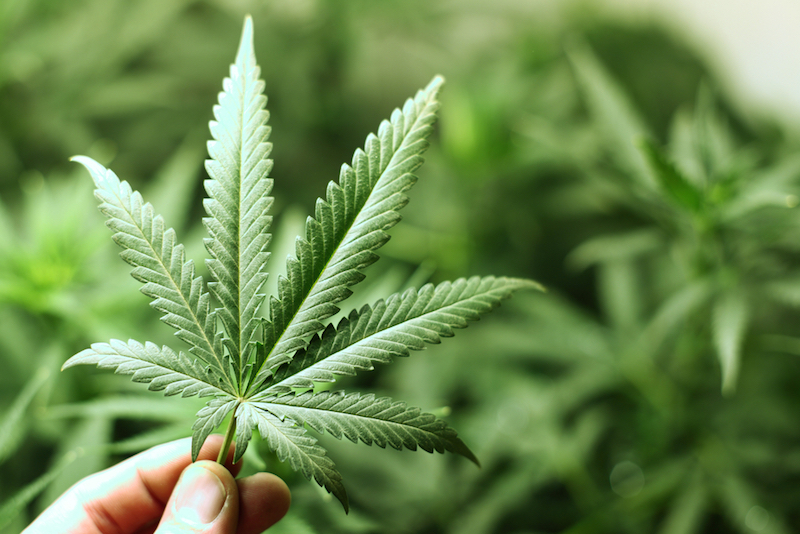Marijuana's THC May Increase 'Noise' in Your Brain

Marijuana's main psychoactive compound, THC, may increase random neural activity — or neural noise — in the brain, according to a new study.
In the study, researchers gave THC to study participants through an IV, and found that the participants showed increased levels of random neural noise after the compound was administered. The participants also experienced a brief increase in such symptoms as having disorganized thoughts, and alterations in their perceptions of reality, the researchers found. These symptoms are associated with what researchers call psychosis — a condition that involves losing touch with the real word.
"At doses roughly equivalent to half or a single joint, [THC] produced psychosis-like effects and increased neural noise in humans,” senior study author Dr. Deepak Cyril D’Souza, a professor of psychiatry at Yale School of Medicine, said in a statement.
The new results suggest that the psychosis-like effects that some people experience from smoking marijuana "may be related to neural noise, which disrupts the brain’s normal information processing," lead study author Jose Cortes-Briones, a postdoctoral associate in psychiatry at Yale School of Medicine, said in a statement.
In the study, the researchers administered THC or a placebo intravenously to 24 people on three separate days, a week apart from each other. On each of the three days, the participants received either a placebo or THC in one of the two doses: 0.015 milligrams per kilogram of their body weight, or twice that amount, 0.03 mg/kg.
The researchers observed what happened in the participants' brains after they were given THC or a placebo by having them wear electroencephalogram (EEG) caps with electrodes during the experiments.
When the researchers looked at the electrical activity in the participants' brains, they saw that the level of neural noise in their brains was higher when they were given THC, compared to when they were given the placebo. [11 Odd Facts About Marijuana]
Sign up for the Live Science daily newsletter now
Get the world’s most fascinating discoveries delivered straight to your inbox.
This increased neural noise may interfere with other signals that transmit information in the brain, the researchers said.
"Imagine you are at a cocktail party, for example, and trying to talk to a friend, but at the same time there are many people talking in the background," Cortes-Briones told Live Science. "The voice of your friend and the message he or she is trying to give you would be the signal, and all the background noises that are combined, merged, would be the [neural] noise."
The higher the level of neural noise, the less information can be communicated within the brain without distortion, the researchers said. They hypothesize that THC and its effects on the brain may affect the capacity of different areas in the brain to process information in a coordinated manner.
The new findings may help researchers understand what goes on in the brains of people with schizophrenia, D’Souza told Live Science. Because of the specificity of schizophrenia's symptoms, such as, for example, the one that causes a person to hear voices, researchers cannot create animal brain models of schizophrenia, he said.
One way of approaching this problem is through trying "in a safe way, to recreate some of the symptoms that are associated with schizophrenia in healthy people using various kinds of drugs," he said.
"And we find that, at certain doses, THC can induce a number of symptoms that resemble some of the symptoms that we see in schizophrenia," D’Souza said.
The study was published in the December issue of the journal Biological Psychiatry.
Follow Agata Blaszczak-Boxe on Twitter. Follow Live Science @livescience, Facebook & Google+. Originally published on Live Science.









